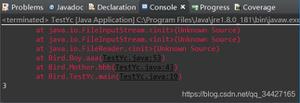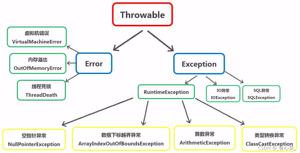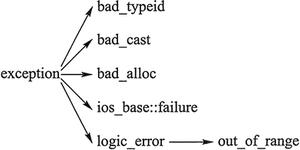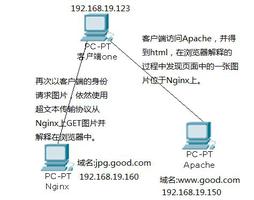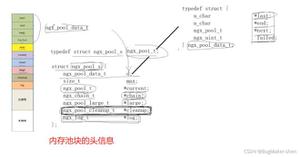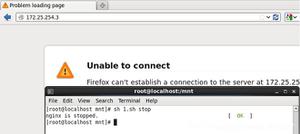在Java中,每个try块后面都必须紧跟catch块吗?
问题是“在Java中,每个try块后面都必须紧跟catch块吗?”
答案是“不,在Java中,每个try块后面都没有catch块不是强制性的。”
在try块之后,我们可以使用“ catch”块或“ finally”块。
通常,应在方法的thrown子句中声明抛出的异常。
为了理解try-catch块,我们将讨论三种情况:
如果每个try块后面都必须有catch块,将会发生什么情况?
如果每个try块后面都必须有一个finally块,将会发生什么情况?
如果每个try块后面都必须同时包含catch和finally块,将会发生什么情况?
在接下来的几个步骤中,我们将借助一个示例逐一探讨上述每种情况,
1)每个try块后面都有一个catch块
示例
//Java程序演示的例子//try-catch块层次结构
public class TryCatchBlock {
public static void main(String[] args) {
try {
int i1 = 10;
int i2 = 0;
int result = i1 / i2;
System.out.println("The divison of i1,i2 is" + result);
} catch (Exception ex) {
ex.printStackTrace();
}
}
}
输出结果
java.lang.ArithmeticException: / by zeroat TryCatchBlock.main(TryCatchBlock.java:8)
2)每个try块后面都有一个finally块
示例
//Java程序演示的例子//最后尝试块层次结构
public class TryFinallyBlock {
public static void main(String[] args) {
try {
int i1 = 10;
int i2 = 0;
int result = i1 / i2;
System.out.println("The divison of i1,i2 is" + result);
} finally {
System.out.print("Code which must be executed :" + " ");
System.out.println("Whether Exception throw or not throw");
}
}
}
输出结果
Code which must be executed : Whether Exception throw or not throwException in thread "main" java.lang.ArithmeticException: / by zero
at TryFinallyBlock.main(TryFinallyBlock.java:11)
3)每个try块后面都有catch和finally块
示例
//Java程序演示的例子//try-catch-finally块层次结构
public class TryCatchFinallyBlock {
public static void main(String[] args) {
int i1 = 10;
int i2 = 0;
try {
int result = i1 / i2;
System.out.println("The divison of i1,i2 is" + result);
} catch (Exception ex) {
int result = i1 + i2;
System.out.println("The addition of i1,i2 is" + " " + result);
} finally {
System.out.print("Code which must be executed :" + " ");
System.out.println("Whether Exception throw or not throw");
}
}
}
输出结果
The addition of i1,i2 is 10Code which must be executed : Whether Exception throw or not throw
下面给出的try,catch和finally的组合是有效的,并且我们已经借助上面给出的示例进行了查看,
尝试捕获块
try-catch-finally块
最后尝试块
以上是 在Java中,每个try块后面都必须紧跟catch块吗? 的全部内容, 来源链接: utcz.com/z/321535.html

